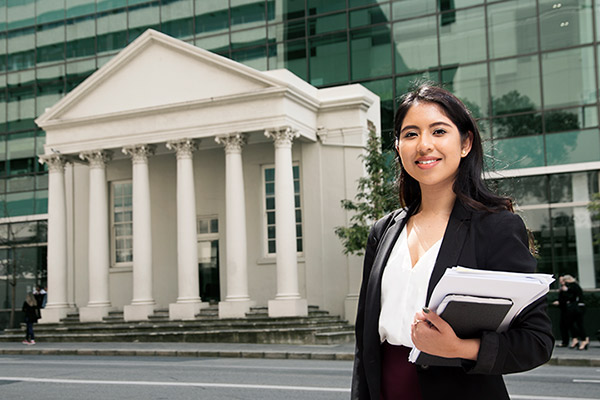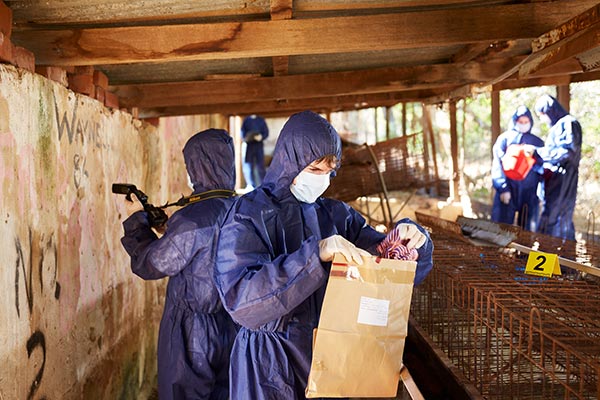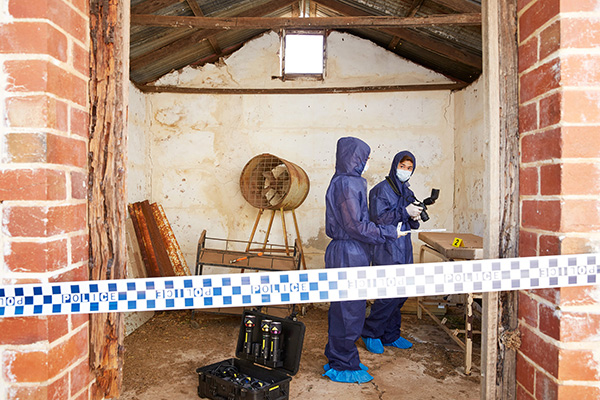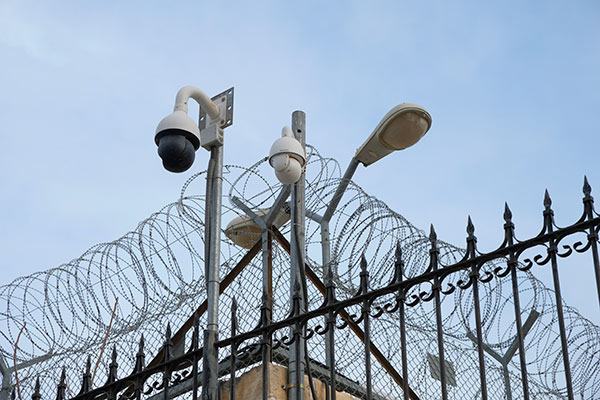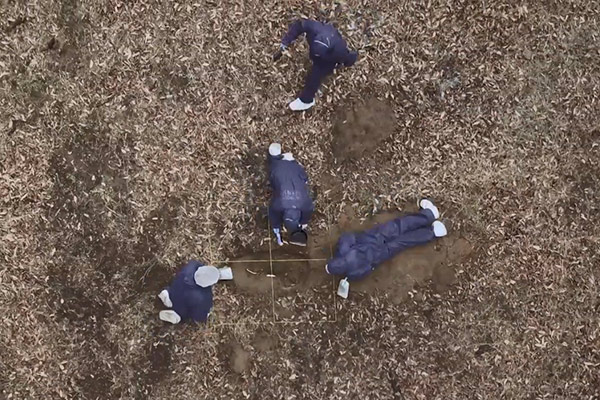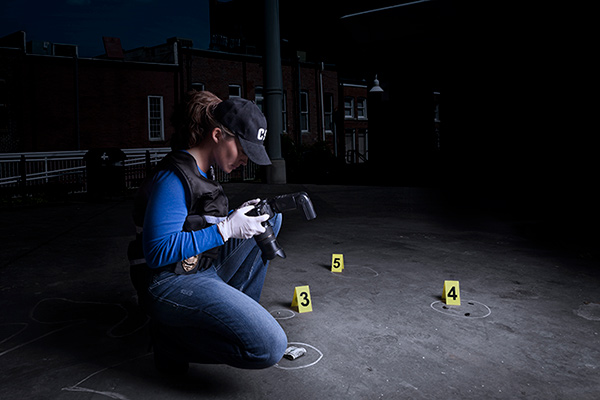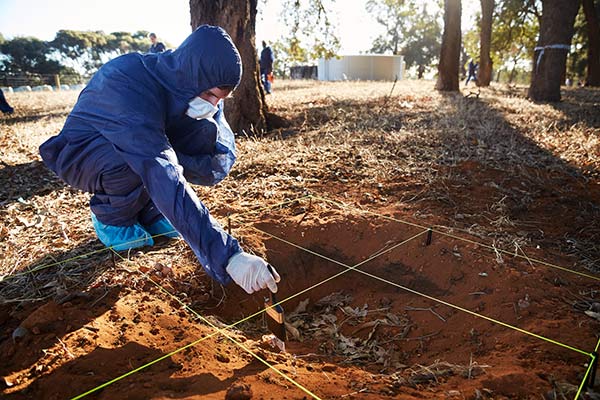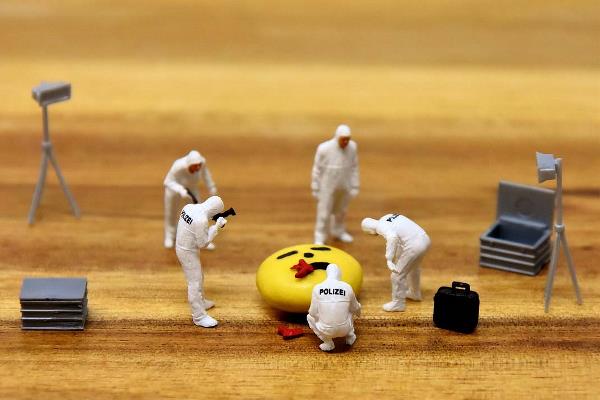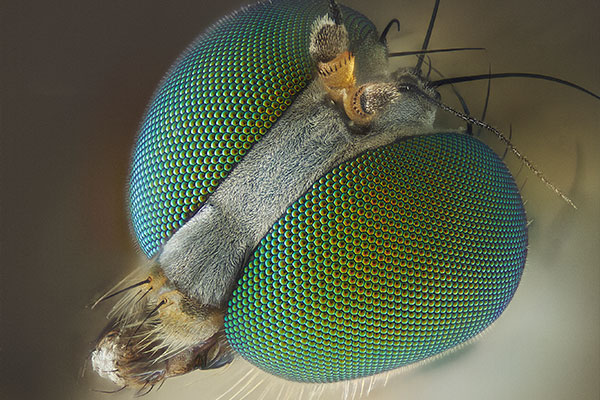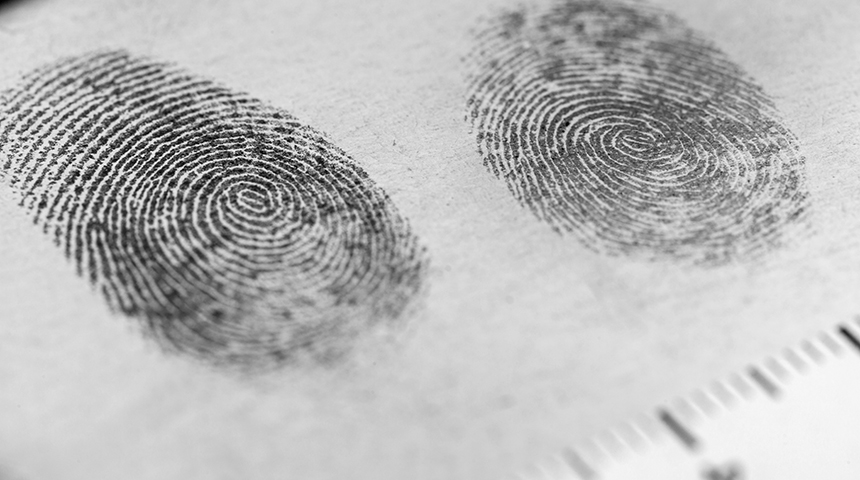
Senior lecturer and real-life criminologist Dr David Keatley explains what criminology is, what it's like to study criminology at uni, what careers you could pursue upon graduation, and the skills you'll need to be successful.
What is criminology?
As Dr Keatley explains, “Criminology is the study of crime, criminals, and the legal system – from crime detection and prevention, through to courts and justice system, and prison and rehabilitation services.”
This includes why people commit crimes, how we can prevent and reduce crime and how to improve the criminal justice system for both victims and offenders. Criminology expands across many different industries including forensics, law, psychology, sociology and more.
At Murdoch you can choose to specialise in different areas of criminology depending on your interests and career goals. A primary focus of teaching and research at Murdoch is to teach students about what is happening in the real-world, with guest lectures from experts in the applied fields.
What will I learn studying criminology?
You'll learn about what can influence crime and criminal behaviour. You’ll look at growing crime rates and look closely at the “who, what, when, where, why” of criminal offences using real local and international data.
The study of crime, criminals, and the legal system and criminology covers everything from crime detection and prevention, to courts and the justice system, and prison and rehabilitation services.
"Depending on which particular area you specialise in, you'll learn how police work is conducted, how to investigate major crimes, how to research key justice system issues, including processing and false confessions, and how to work with people who are coming out the other side of the justice system," says Dr Keatley.
With the ability for you to specialise in a number of areas such as criminal behaviour, white collar and corporate crime, legal studies or crime science, Dr Keatley believes Murdoch's course gives students the unique opportunity to gain an understanding of the motivations and patterns of criminal behaviour in Australia.
Beyond criminology, you’ll learn key skills in communication and writing, giving you the ability to convey your ideas to a wide and varied audience, which is essential for presenting your case and evidence.
What does a career in criminology look like?
A career in criminology could see you working in roles in court and corrections facilities, police services, youth work, community groups, government departments and criminal forensics.
According to Dr Keatley, "A lot of our students continue into related fields, from state police and the AFP, through to the court system. A growing number of students also use their degree to facilitate other, related roles such as working in Division of Child Protection and juvenile justice systems.
"The ability to customise your course equips you with a large amount of congruent, related skills in areas that interest you."
Other common careers in criminology include a community correction or liaison officer, juvenile justice or youth officer, police officer, research officer, crime prevention officer and of course, a criminologist.
What skills do I need to become a criminologist?
Dr Keatley recommends the ability to study autonomously and as part of a group, a key skill to success at university in general.
"At times, there’ll be a lot of independent work, but learning how to manage teams and groups is also important, as it'll be a highly sought-after skill once students graduate and move into their respective careers.
"It's also paramount to be able to work with people in other fields such as forensics, as a large part of whichever job students end up in will require them to work with experts from other related fields."
Murdoch offers you the opportunity to study a combined Bachelor of Criminology with a Bachelor of Science in Forensic Biology and Toxicology, the only degree of its kind in Australia.
This means in addition to learning about criminal behaviour and legal studies, you'll gain an understanding of the science that helps solve major crime, including fingerprint analysis, forensic chemistry and cause of death, effectively doubling your career opportunities upon graduation.
Criminology and Crime Sciences are incredibly diverse fields that can have implications across a number of industries.
International student Silvie found studying Crime Science at Murdoch the perfect way to enhance her degree in Social and Legal Services and further her skills, ensuring she has greater employment options in the Netherlands.
The teachers and students are really friendly. The teachers were always willing to help me when I had some extra questions.
“Murdoch takes such good care of its international students and the study abroad coordinators really make sure you’re having a good time.”
Will I get a job in criminology?
The flexibility of being able to tailor your degree to focus on a particular area of interest allows you to be prepared for a range of jobs in a variety of areas upon graduation.
Due to the amount of competition for jobs in every field of criminology, Dr Keatley and fellow lecturers have structured their course to focus on real world experience through Murdoch's Work Integrated Learning programs, in order to give graduates a competitive edge.
"Our students benefit from experts in their field who have first-hand experience. Not only does this teach our students about current trends in the job market, it also fosters links with potential employers."

